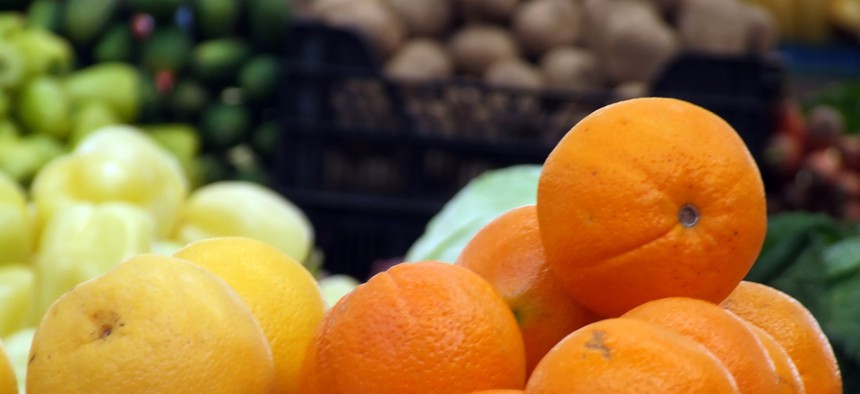
PhotoXpress
Should the Government Force Food-Stamp Users to Eat Better?
New research shows that a soda ban would reduce obesity and type 2 diabetes.
Food-stamp users would be much healthier if they were forbidden to spend federal dollars on soda, but subsidizing part of the cost of their fruits and vegetables would not have a significant impact on obesity and diabetes, according to a new report from Stanford University.
The Stanford researchers are the first to evaluate the impact these government actions would have on the 46 million Americans who participate in the Supplemental Nutrition Assistance Program, known as SNAP. Public health officials are searching for ways to improve the nutrition of SNAP participants, who have higher rates of obesity and type 2 diabetes than Americans of the same income level who aren't in the program.
According to the study, "SNAP participants consume almost twice as many calories from sugar-sweetened beverages as they do from vegetables and fruit." There's a growing body of evidence that liquid calories can do more damage to the body than regular junk food, and Basu said that's a key reason why banning the purchase of sugar-sweetened beverages would have a significant impact on the health of SNAP users.
"We observed that the restriction from purchasing sugary beverages could prevent 400,000 cases of obesity and 250,000 cases of type 2 diabetes over the next decade," said lead researcher Sanjay Basu, an assistant professor of medicine at Stanford University.
Meanwhile, giving SNAP participants 30 cents back for every dollar they spend on fruits and vegetables is not expected to have any impact on obesity and diabetes rates. But Basu said their study found that the subsidy could still double the number of SNAP participants who meet the nutritional guidelines for fruit and vegetable intake, ensuring that they are eating the recommended vitamins and nutrients, a notable health improvement among the population. This produce program is already being tested in a pilot project at the U.S. Department of Agriculture.
While the findings are important considerations for policymakers looking to improve the SNAP program, they're not likely to be implemented any time soon. Just this year Congress cut $8.7 billion from the program in the farm bill.
Basu says implementation isn't the next step anyway.
"We need to have USDA authorization to do a pilot study," Basu said. "Before we change anything for 46 million Americans, we need to do a randomized trial to see if this has the expected benefit."







